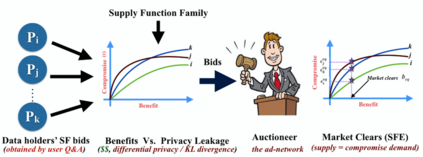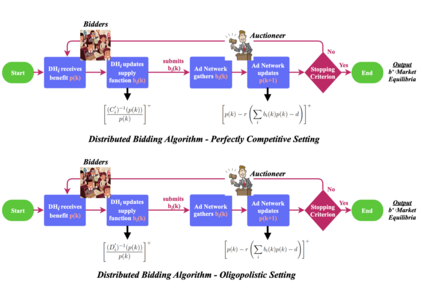The question we raise through this paper is: Is it economically feasible to trade consumer personal information with their formal consent (permission) and in return provide them incentives (monetary or otherwise)?. In view of (a) the behavioral assumption that humans are `compromising' beings and have privacy preferences, (b) privacy as a good not having strict boundaries, and (c) the practical inevitability of inappropriate data leakage by data holders downstream in the data-release supply-chain, we propose a design of regulated efficient/bounded inefficient economic mechanisms for oligopoly data trading markets using a novel preference function bidding approach on a simplified sellers-broker market. Our methodology preserves the heterogeneous privacy preservation constraints (at a grouped consumer, i.e., app, level) upto certain compromise levels, and at the same time satisfies information demand (via the broker) of agencies (e.g., advertising organizations) that collect client data for the purpose of targeted behavioral advertising.
翻译:我们通过本文提出的问题是:在征得消费者正式同意(许可)的情况下交易消费者个人信息是否经济上可行,并反过来提供激励(货币或其他方式)? 鉴于(a) 认为人类是“损害”人和有隐私偏好的行为假设,(b) 隐私是一种没有严格界限的好东西,以及(c) 数据释放供应链下游数据持有者不适当的数据泄漏实际上不可避免,我们提议设计一个节制的高效/限制的低效率经济机制,用于使用新式优惠办法在简化的卖方-经纪人市场进行招标的寡头数据交易市场。我们的方法将各种隐私保护限制(在集体消费者,即应用程序,级别)保持在某种妥协水平上,同时满足(通过经纪人)收集客户数据的机构(例如广告组织)的信息需求(通过经纪人),以有针对性的行为广告为目的。








